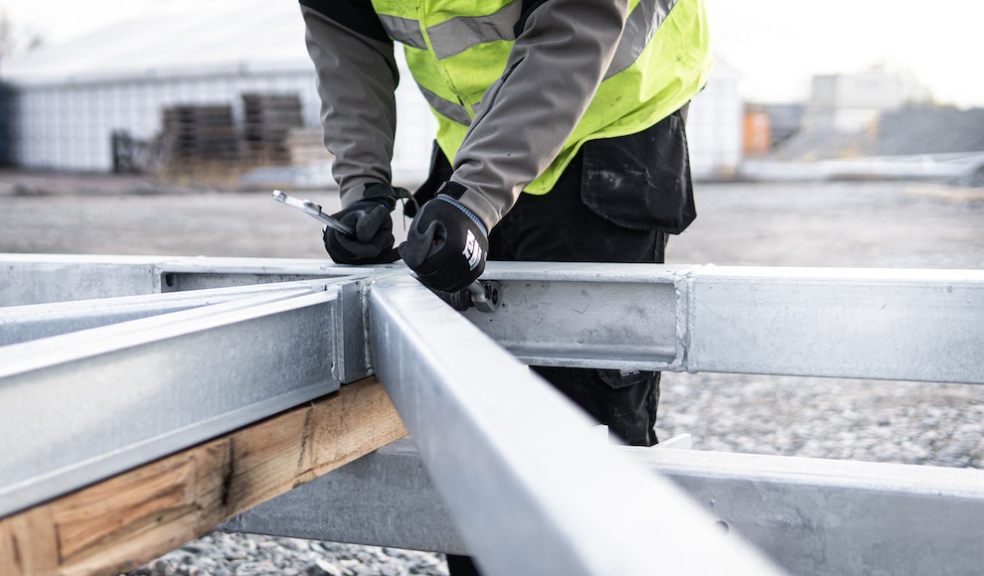
Sustainability In Construction: How to be a Green Business and How to Choose the Right Suppliers
Global concerns about climate change and the devastating costs are not just valid but serious enough to motivate everyone into lifestyle changes. Thankfully, most countries intentionally are helping to reduce the collective carbon footprint through various policies targeting different sectors. As a business owner, you are responsible for making your business green to contribute toward the UK government’s 2050 carbon goals. While that sounds great on paper, many businesses may find it challenging to implement strategies to reduce their carbon footprints. With the rising cost of energy, raw materials, and other factors impacting businesses, you need a clear plan to move your business gradually toward the green economy. This article explores how you can make your business green while retaining your uniqueness and competitive edge.
How to Make Your Business Green
Going green is never a day's job. For your business to become net zero carbon, dozens of major and minor changes must happen. Here's what you can do:
Create a Plan
There's a chance that 80% to 100% of your business runs on non-green resources. Unless you have unlimited funds and access to certain tools, you may be unable to implement full changes at once. It would help if you created a plan to implement green policies in your business gradually. You can start by identifying the things to change and develop strategies to change them without affecting your business.
Switch to LED Lights
Most business premises leave lights on for the greater part of the day. Lighting takes a significant chunk of energy bills and contributes to carbon emissions. Switching to LED lights can save up to 35% of energy usage and reduce the environmental impact of lighting. Today, many businesses use alternative power for their lights.
Switch to Renewable Energy
The focus on renewable energy for businesses is based on the premise that it lowers expenses, lasts longer, and has less environmental impact. You can switch all or some of your energy sources to renewable energy. If you produce your own renewable energy through the installation of solar panels and wind turbines, for example, if you can sell any excess energy to the National Grid and get extra business revenue.
Use Sustainable Construction Materials
Thanks to technology, low carbon construction materials such as asphalt and concrete can help reduce a project’s carbon footprint. If you are building a new business office or engaged in the construction business, Hanson UK is a trusted supplier of sustainable construction materials across the UK.
Implement Energy Conservation
Energy conservation can reduce carbon emissions by reducing the electricity demand. You can start by turning off unused lights, sockets, and devices. Set auto shutdown timers for your systems and upgrade to newer energy-saving devices. Sensitise your staff on energy conservation both in and out of work .
Go Big on Recycling
If your business uses lots of paper, for example, there's a chance that you contribute a lot to carbon emissions. Recycled papers and other items can save as much as 34% of the energy required to manufacture new items. Although recycling sometimes uses more resources, you can make your business greener by sending used items for recycling and intentionally using recycled items.
Use Energy Monitoring Systems
It is sometimes difficult to determine your energy consumption from complex calculations. That's where energy monitors are helpful. Energy monitors provide in-depth data on your energy usage. The data helps you decide on reducing energy consumption and implementing conservation strategies.
Reduce Water Usage
Water management, supply, and usage contribute around 6% of CO2 emissions. Most people don't realise it but saving water can help to reduce the collective carbon footprint. Create strategies and solutions to reduce water usage and recapture wastewater. You could also utilise grey water to reduce the demand for clean water, which also helps to drive down carbon emissions.
Use Solar or Ground Pump Heaters
While your water and central heating system may be largely unused in summer, you may have to pay more electricity bills in winter when they are constantly working. But you can save money and reduce your electricity consumption through installing solar and ground pump heaters. These heaters use alternative energy and emit zero carbon.
Incentivise Green Actions
Your employees may find adjusting to new lifestyle changes to implement green policies difficult. You can help them by incentivising actions that promote a green lifestyle. You don't have to break the bank to reward them; simple things such as public commendations can work wonders.
How to Choose the Right Suppliers
Deciding to go green is one part of the job; getting the right supplier for business and construction materials is the other important part. Here are the top factors to consider when choosing the right sustainable supplier:
History
Although you can always try new suppliers, it is best to stick with those with a quality history in the construction business. Why? You don't have to spend more time verifying their expertise and worrying if they'll deliver.
Expertise
Unless your supplier is into general construction materials and services, it is best to find one that specialises in supplying what you need. Expert suppliers focus on a particular material and know the market and general performance. That knowledge is key to getting the best deals.
Third-Party Certification
Getting third-party certifications in the UK is authorised by the UKAS, the government-approved regulatory body. UKAS, in turn, accredits bodies to perform third-party certifications for companies. You should find a supplier that's certified by a UKAS-accredited body. Nothing like a double assurance that you're purchasing quality products or services.
Collaboration
Sometimes, construction products may be scarce or expensive because of certain factors. But some suppliers may have a special business collaboration and relationship that gives them the edge to get materials at lower costs. If you find such suppliers, you may still get affordable items even when prices rise globally.
Service Delivery
Go for suppliers with proven quality of delivery. Sometimes, the way suppliers deliver is more important than the items they deliver. Find suppliers that go the extra mile to provide excellent services that can help your business save time. You might have to spend more, but it's worth it.
Communication
Communication is vital to any business relationship. Get a supplier that understands and practises effective communication. It would help if you stayed in contact with your supplier to get the latest updates, such as price changes, availability of materials, and deals. Maintaining a cordial relationship may help you achieve your green goals faster.
Production Capacity
Buying directly from manufacturers can save time and money. But ensure to find a manufacturer that can meet up with enormous demands. Entering a contract with a supplier or manufacturer with low production capacity may jeopardise your business processes and cause losses.
Regulatory Compliance
Ensure that your supplier meets all regulatory standards and regulations within the country. If they don't, there's every chance that their products are substandard and therefore unfit for your use. Ask for evidence of regulatory compliance or check local official listings for authorised suppliers. Don't be reluctant to verify your supplier before making a deal.
Compliance With Green Practices
Since your goal is to make your business green, you can also add compliance to green practices as a requirement before dealing with any supplier. It's best to find a supplier committed to a green economy.



















